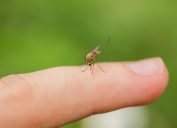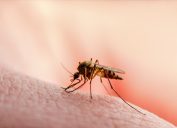6 Places Mosquitoes Are Thriving in Your House
Target these areas to get rid of the pesky pests, experts say.
We all know what a nuisance mosquitoes can be when you step outside on a hot summer's day. But experts say that oftentimes, these pests can also work their way indoors, taking up residence in the dark and damp corners of your house.
"As weathers get hotter or colder, insect pests of all kinds will seek shelter in your home," explains Emma Grace Crumbley, an entomologist for Mosquito Squad. "Check that there are no holes, cracks, or unwanted gaps around the entryways and walls of your home. Door slips, window covers, and screen doors can help prevent insect pests from entering the home."
Wondering where mosquitoes may be thriving in and around your house without you realizing it? Read on to learn the nine places they often hide in your home.
RELATED: 4 Soaps and Scents That Repel Mosquitoes, Experts Say.
1
Near baseboards
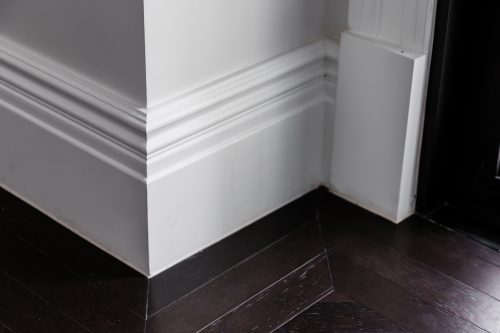
A recent study published in the journal PNAS Nexus found that spraying the bottoms of your interior walls with insecticide can kill most of the mosquitoes in your home—the reason being that heat rises, and the insects prefer to stay down where it's cooler.
If the lower portions of your walls are dark in color, you may also be more likely to find mosquitoes here, as Aedes aegypti (the types of mosquitoes that carry yellow fever and Zika) "are known to prefer to perch on dark surfaces," explains Phys.org.
2
In the kitchen
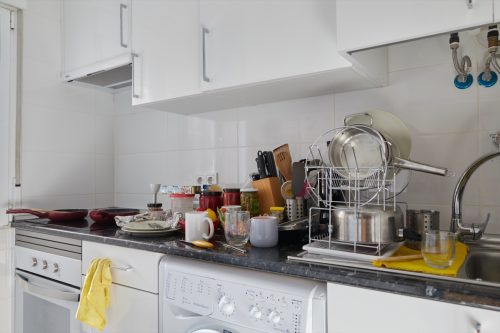
Most often, mosquitoes enter the home through open windows, doors, and cracks in your home's foundation. However, they'll quickly gravitate toward any area in the home that has standing water—making your kitchen a prime location for them to gather.
"Potential breeding grounds in your kitchen include standing or stagnant water areas, such as behind or under your refrigerator (if leaking), under the sink…or in pet water dishes," says Crumbley. "Keeping these areas clean and water-free (or, in the case of the pet bowls, changing out the water frequently) can reduce the number of mosquitoes hatching and hanging around your kitchen."
And remember that all it takes is a half inch of water for mosquitoes to lay their eggs, according to Jim Fredericks, the senior vice president of public affairs for the National Pest Management Association (NPMA).
READ THIS NEXT: 5 Plants That Will Keep Mosquitoes Out of Your Yard, According to Pest Experts.
3
Near houseplants
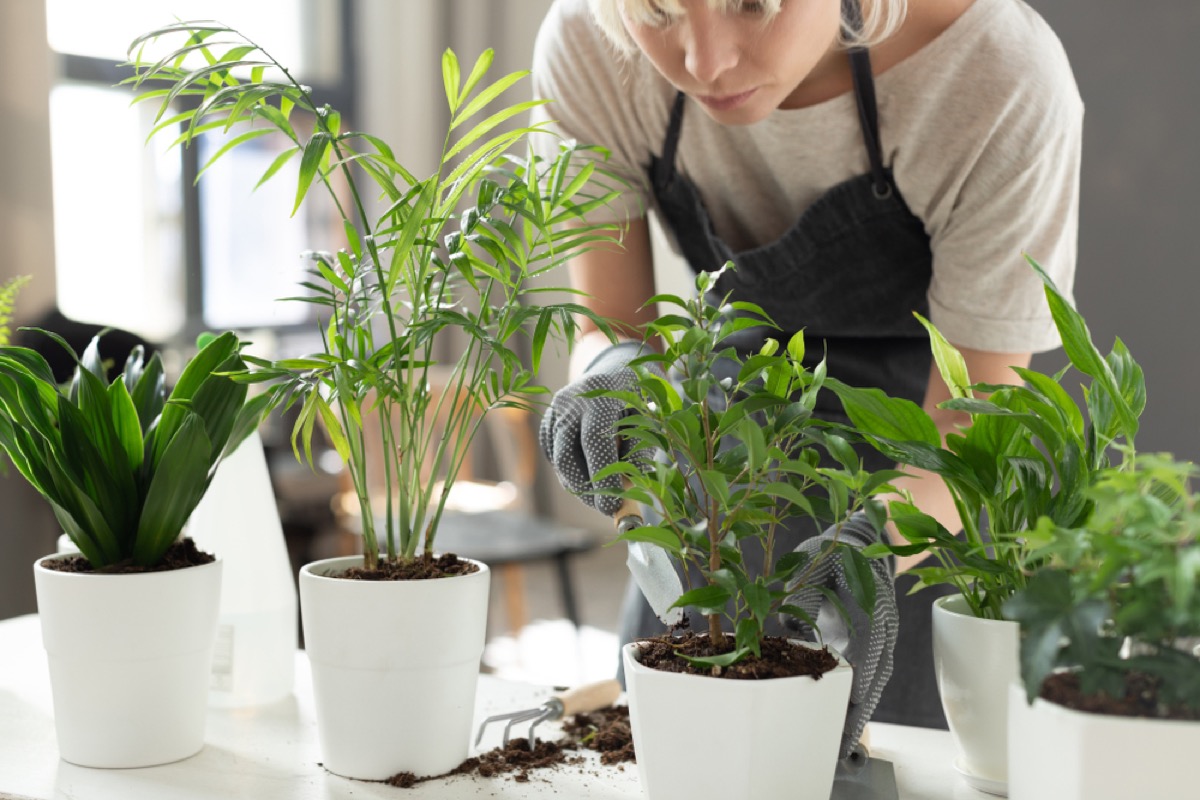
Crumbley says that overwatered indoor plants can also attract mosquitoes, especially if they sit near open windows.
"Keep indoor foliage well-kept and check water levels regularly. Make sure to keep your indoor plants in areas with appropriate sunlight to regulate their water intake (plants in shaded, dark areas will hold standing water longer—this can attract mosquitoes and also cause your plants to develop root rot)," she warns.
RELATED: 7 Reasons Mosquitoes Are Attracted to You, According to Science.
4
In the bathroom

With all of its various water sources, your bathroom is another potential hub for mosquitoes to meet and mingle.
"Mosquitoes need consistent standing water to lay their eggs in. Leaky pipes in the bathroom under the sink, behind the shower, or elsewhere can create pools of stagnant water in your home," says Crumbley.
RELATED: 6 Mosquito Repellent Hacks That Actually Work, Experts Say.
5
In your home's dark corners
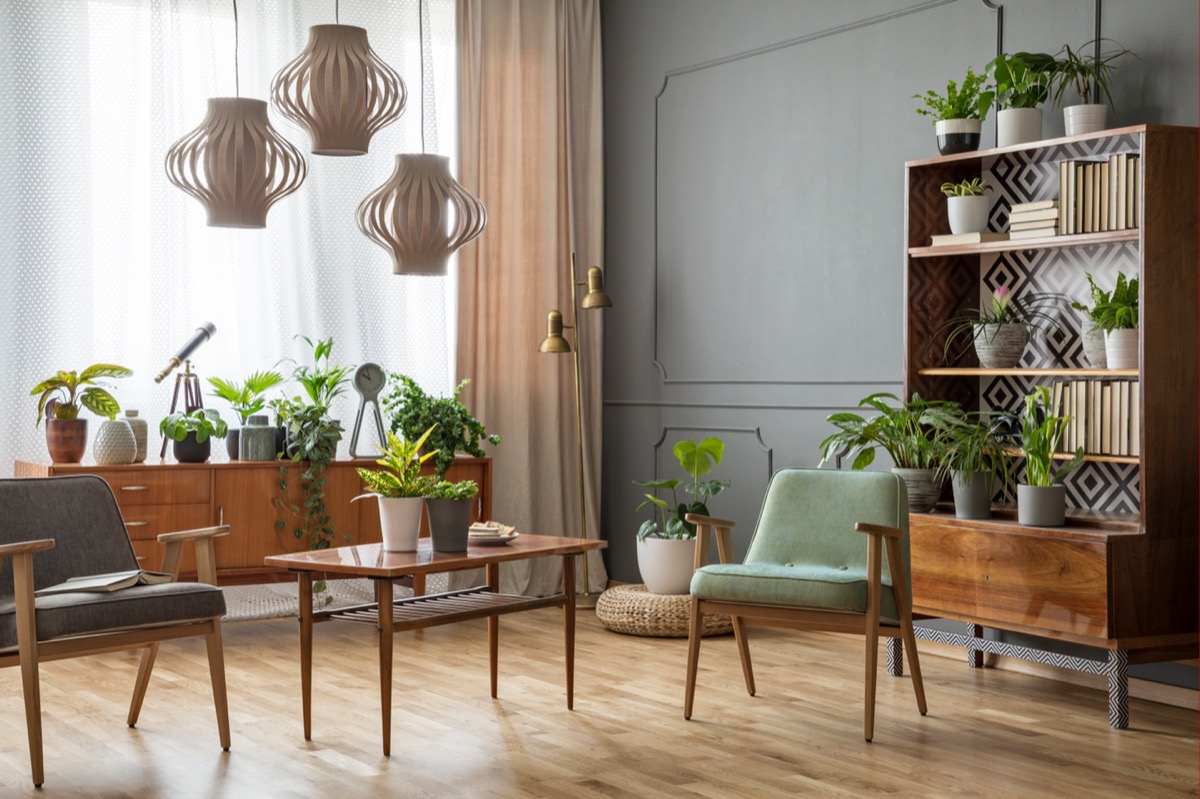
Carpenter says that mosquitoes can hide indoors in any dark and damp corners of the home—behind curtains and drapes, under furniture, or inside closets and storage areas, for example. She recommends regularly inspecting and cleaning these areas where mosquitoes may hide or lay their eggs.
"Use a vacuum cleaner with a crevice attachment to reach difficult spots. Additionally, consider using mosquito nets or screens over windows and doors to prevent mosquitoes from entering the house," she advises.
For more pest advice delivered straight to your inbox, sign up for our daily newsletter.
6
And here's where they like to hide outside your house.
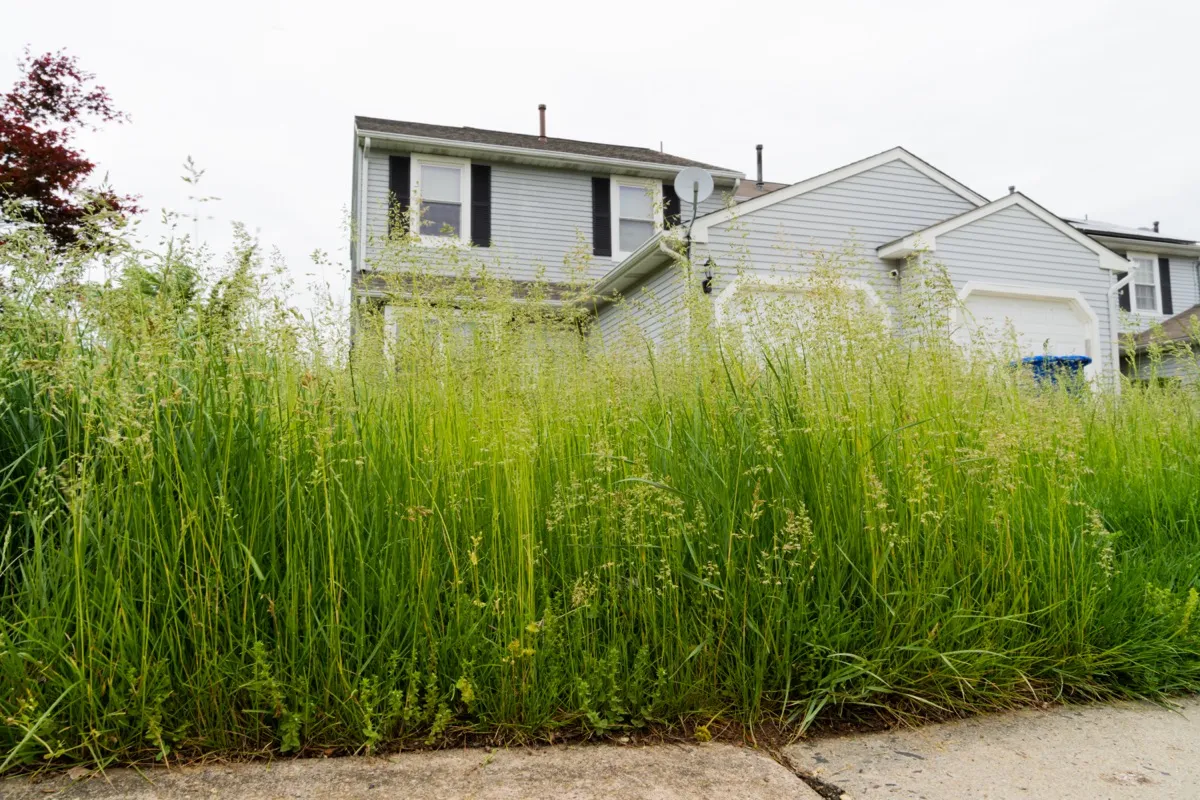
If your backyard is attractive to mosquitoes, they're more likely to find their way inside.
Nicole Carpenter, CEO of Black Pest Prevention, says the insects often congregate near trees.
"Mosquitoes might find shelter and breeding sites in trees with holes and hollows, especially after rain," she explains. "If tree holes tend to collect water, consider improving drainage in the area. You can create channels or drill small holes in the tree to allow water to flow out."
And of course, any source of standing water is a prime breeding ground. In addition to bird baths, water fountains, and damp vegetation, this includes outdoor toys, play sets, kiddie pools, and sandboxes.
"After rain events, be sure to check these areas and dry up or dump out standing water," Crumbley recommends.
Fredericks adds that the space underneath your deck, which is often darker and moister than the rest of your yard, is another prime locale.
Finally, Carpenter advises against "allowing plants, shrubs, and garden beds to overgrow, as this provides an inviting habitat for mosquitoes."
"Regularly trim tall grass, hedges, and shrubs, and maintain a short lawn to reduce potential hiding places for mosquitoes, ticks, and other insects," she suggests.


